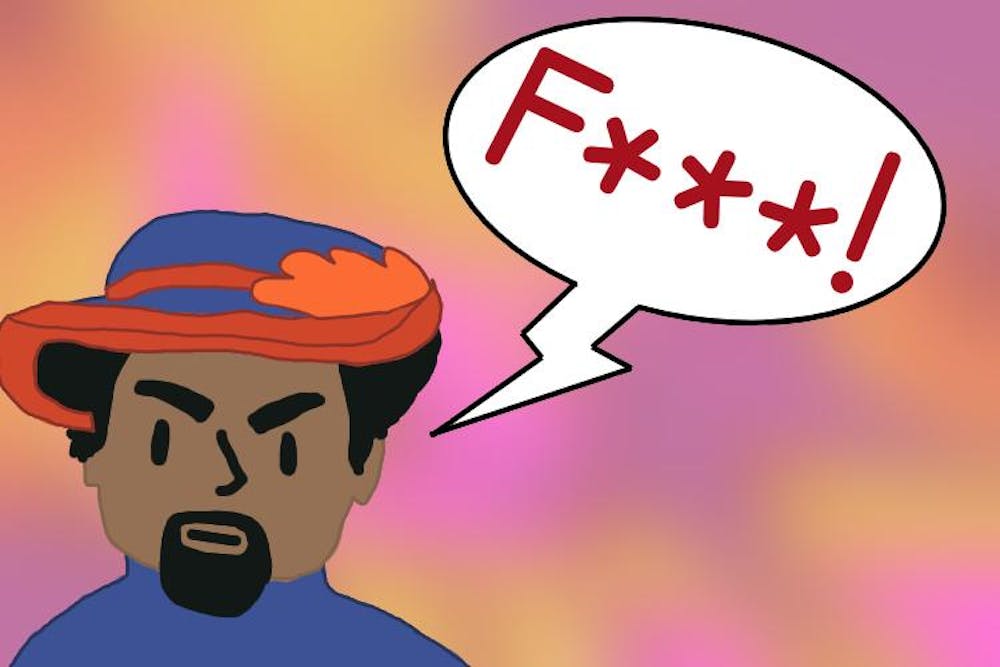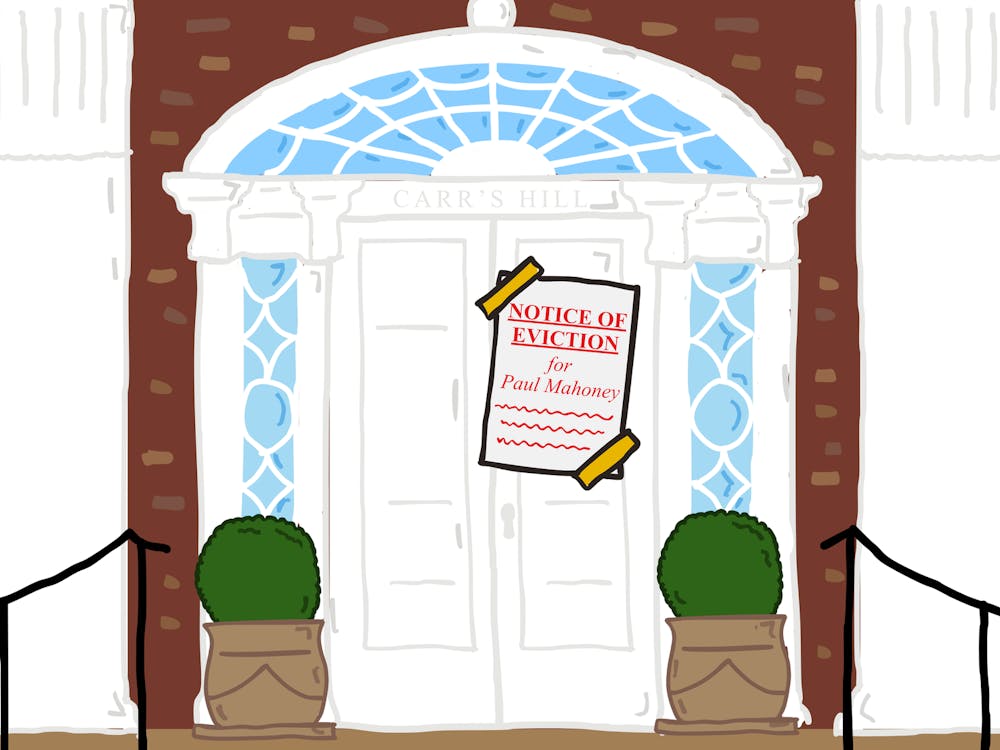Editor’s note: This article is a humor column.
CHARLOTTESVILLE, Va. — The Board of Visitors unanimously passed a resolution Monday afternoon that added “swearing” to the list of actions prohibited by the University’s honor code, alongside the existing lying, cheating and stealing. While the controversial decision circumvents the University’s student-run Honor Committee, statements released by the Board indicate it was an inevitable response to mounting federal pressure for conservative policies in higher education.
This addition marks the biggest change to the honor system since the switch to a multi-sanction system in 2023, which was the result of a student body referendum that took place the same year. This week’s change, however, has received substantially less student support due to the Board’s lack of transparency and the sweeping nature of what they constitute as swearing.
“One of my summer session buddies was put on a two-semester suspension after saying the H-word during a “Paradise Lost” discussion section,” said second-year College student Johnny Milton.
Milton explained how students have had to find workarounds for seemingly unassuming works of literature often used in academic settings.
“People have started using ‘H-E double hockey sticks’ as a code term for the underworld of Biblical scripture, and it seems like it’s only a matter of time until that becomes an honor offense, too.”
Despite the largely negative sentiment surrounding the change, the student-run Honor Committee has forcefully upheld the policy, processing hundreds of reports a day ranging from tier-one swear words such as “d—n” to profanity that would make Richard Nixon blush. This consistency is necessary for the group’s survival, as, according to a guiding resolution from the Board, the Committee “shall remain subject at all times to the authority of the Rector and Visitors.”
Personal motivations also seem to be at play for members carrying out the Board’s directive — an interviewed Honor representative mentioned professional development and University mentorship as reasons to continue serving the committee.
“Three of the seventeen Board members appointed by Youngkin got their J.D. from U.Va. Law,” said Bree Tentious, Honor representative and third-year College student. “These are people that know what they’re doing, and it’s my duty as a public servant to follow their lead. If my interactions with John L. Nau have taught me anything — aside from the market dominance of Anheuser-Busch brewing distributors, that is — it's that I should stick with whatever values seem right at the time.”
In statements released after their decision was made public, members of the Board defended the new policy, echoing Trump administration claims that higher education is not a safe space for conservative faculty members or students.
“Gosh, the University was just plain nasty before we made these changes,” said Board of Visitors Rector Rachel Sheridan. “With all these elitist professors pushing violence and sex into the curriculum, we needed to reaffirm our commitment to decency and protect the good old-fashioned values on which the University used to rely.”
In the wake of the Board’s decision, it quickly became apparent that students in fraternity life were disproportionately affected by the new honor code. Brothers were being sanctioned frequently for offenses including the use of “d——s” instead of “deaduzz” and numerous jokes regarding the University’s Cocke Hall.
Thus, the Board acted quickly and exempted members of the Inter-Fraternity Council and associated organizations from being reported under the new clause. Reports of Elmo brothers attempting to storm Carr’s Hill prior to that amendment are unsubstantiated.
While an Honor-led referendum could repeal the ban on profanity, it seems unlikely that the Committee would propose such a change at this moment, leading class council and student council to consider issuing no confidence votes in the Committee.
Furthermore, the reversal would need to secure a majority in a student body vote, and with increasing numbers of students stuck sitting through profanity-related honor hearings as demoralized jury members or defendants, that vote also seems likely to fail.
Despite uncharacteristically polite expressions of frustration on Grounds, alumni groups such as The Jefferson Council and national politicians have made statements celebrating the Board’s decision. President Trump himself took to social media platforms to defend the Board’s institution of the ban.
“The Fake News Media is trying to undermine very fine people at U.Va. who are finally MAKING EDUCATION GREAT AGAIN,” said the president in a late-night Truth Social post. “Anti-America Harvard should be taking notes. It is great to see Board members who KNOW WHAT THE F—K THEY’RE DOING!”







